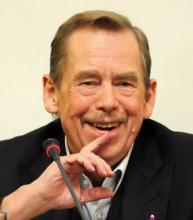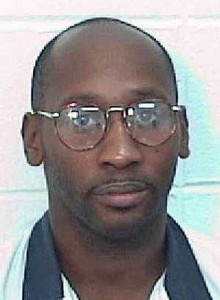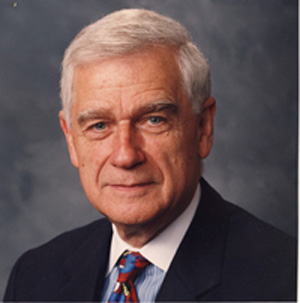death

Beloved TV actor Andy Griffith has died, according to news reports. He was 86.
Griffith died this morning.
Former UNC President Bill Friday says The Andy Griffith Show and Matlock actor died at his home in Dare County, North Carolina around 7 a.m.
Friday, who is a close friend of the actor, confirmed the news to WITN News.

When her 91-year-old aunt passed away in 2010, Diane DiResta videotaped the eulogies to create a record of the moving words spoken. She wasn't ready to talk about her aunt at the service, so she used an online tool for publishing audio to record her thoughts, then e-mailed the audio file to close family.
And when a cherished 89-year-old uncle died in Las Vegas in February — and there was no funeral service to follow — the New York City resident again turned to technology.
"Since there was no way for the family to share his life and express their grief together, I created a blog," she said. "I added pictures, and family members were able to post their memories of him."
This is Mourning 2.0. Technological advances have dramatically altered how we grieve for and memorialize the dead.
In this new era, the bereaved readily share their sorrow via Facebook comments. They light virtual candles on memorial websites, upload video tributes to YouTube and express sadness through online funeral home guest books. Mourners affix adhesive-backed barcodes or "QR code" chips to tombstones so visitors can pull up photos and videos with a scan of a smartphone.
How many more times do we have to read a story like this one?
The American military claimed responsibility and expressed regret for an airstrike that mistakenly killed six members of a family in southwestern Afghanistan, Afghan and American military officials confirmed Monday. The attack, which took place Friday night, was first revealed by the governor of Helmand Province, Muhammad Gulab Mangal, on Monday.
If it is the U.S. intention to win over the Afghan people, this is exactly how not to do it.

Prison Fellowship founder and Watergate figure Chuck Colson will be buried privately with full military honors at Quantico National Cemetery, with a public memorial service expected later at Washington National Cathedral.
Colson, who died Saturday (April 21) at age 80 after a brief illness, served as a captain in the Marines.
Michelle Farmer, a spokeswoman for Prison Fellowship, said Tuesday the family graveside service at the Virginia cemetery will occur “in the coming days.”
It had been more than a week since the doctors had moved me into the ICU, and more than a week since I had tasted anything liquid.
My tongue was dry and felt like leather. At night, I would watch the machines around me blink. The IV bags hung next my bed and scattered the light across sterile white walls.
 I tried not to cry when I could no longer control my bowels. I lay there in my own filth waiting for a nurse to rescue me.
I tried not to cry when I could no longer control my bowels. I lay there in my own filth waiting for a nurse to rescue me.
I came into the world unable even to clean myself and now it seemed I would leave it in the same state.
Finally the nurse arrived to help me.
“I’m thirsty,” I told her. “May I have an ice cube?”
She said no.
“Please? My mouth is so dry. Just an ice cube,” I begged.
“No.”
Oxygen tubes inserted into my nostrils had rubbed my nose raw. I pulled them out.
I felt relief. I watched the numbers drop on the LCD screen. An alarm sounded.
I tried to put the tubes back when the nurse ran in.
“Mr. King, you need the oxygen,” she chided, skillfully replacing al the tubes and checking all the machines and medicines that flanked my hospital bed — all the things that were keeping me alive.

Trayvon Martin's slaying has ignited a national discussion on race and privilege.
Many of us recognize that Trayvon’s untimely death is not an isolated incident.
Racial profiling. Discrimination. Enmity. Suspicion. Intimidation. Fear. Hate.
For far too many Americans, these are everyday realities.
As Christians, we are called to fight injustice and work to heal the broken systems — and broken relationships — of the world. We act, with Jesus Christ, to bring about reconciliations — between people, people groups, communities; within (and between) organizations, institutions, and social systems.

I got emails from my mom and uncle about Nana, my last living grandparent. The news isn’t great. She’s struggled with dementia for some years now and hasn’t recognized me the last several times I’ve seen her. But while her mind has been betraying her for a while, it’s her health now that seems to hang in the balance.
Not that it’s a surprise at ninety years old. And it’s also not like we’re particularly close anymore. Aside from living 700 milers away, it’s hard to have much of a relationship with someone who has no idea who you are. But there’s something about knowing she’s close to the end of her life that really freaked me out last night.
When I was a little guy, I had three great grandparents that I remember visiting. They all smelled funny and talked constantly about stuff I didn’t understand, but I got that they were family. I’d visit Pappy and Sweetie, who lived in a trailer home on the Mississippi River; Granny Hagen had her own house for a few years, and then she got moved into one of those silos where people wait to die. Yes, there are some retirement facilities that actually have signs of life in them, but this wasn’t one of them. My mom’s family was pretty poor, and things like retirement and end-of-life planning weren’t a particularly high priority.
Their deaths didn’t bother me too much. I didn’t like seeing my parents sad, but that was about it. I’d miss the candy corns and balloons Pappy always gave me (he called candy corns “duck butters” because when he’d feed them to the ducks, their butts would stick up in the air when they reached down to eat them). But my grandparents were the ones I actually knew as people.

The Bible teaches us: “A good name is better than precious ointment and the day of death, than the day of birth.” (Ecclesiastes 7:1)
On this day, as the world morns the unexpected passing of legendary singer Whitney Houston, this wisdom reminds us that when we grieve death, we grieve our own loss.
Ms. Houston has passed from time into eternity, from this veil of tears to a place where there is no more pain and no more tears, where the only relevant judgment is the judgment of God Almighty.
As a girl, Ms. Houston sang in church, and in her last public performance she sang, “Yes, Jesus Loves Me.” In the time and space between, she lived a life of wealth and fame, of joy and pain.

How many people wanted to be President of the United States when they were younger? I’d imagine quite a few. I certainly did, although I now realize that such an attempt would have resulted in something of a "birther" controversy.
As a kid, what made me want to be in such a position of authority wasn’t necessarily the power and prestige of the president. It wasn’t the White House, or Air Force One. It wasn’t even having the authority to pardon a turkey once a year.
It was the red phone.
You know the one. Commissioner Gordon has one for Batman. President Merkin Muffley has one in Dr. Strangelove (I’m pretty sure it’s red, even though it is shot in black and white). It was the phone you used to fix things. To call the superhero, or patch things up with an inebriated Soviet leader (what, you didn’t play Cold War when you were growing up?) That red phone was your hot line to solving whatever problem you were confronted with.
Today, I still want that red phone.

I’ve been writing this week about inspired vision and embracing radical change even in the face of the death of present systems. But the experience is different when applying the same principles to our own lives. The following is taken from my upcoming memoir, PregMANcy, due out in a few weeks. The setting is about four years ago, when my son, Mattias, decided his latest obsession would be death.
______________________________________________
I’ve noticed that Mattias has been more fearful in general lately, which concerns me. Part of it, I think, has to do simply with the fact that he’s smart enough to think through possible scenarios. As I’ve observed with him a number of times before in the last two years, he’s able to process a whole lot more intellectually than he can process emotionally. Eventually, his emotional wisdom should have plenty of opportunity to catch up, but for a four-year-old, any gap in development is more pronounced.
Two years ago, when he was only a year and a half old, Mattias was jumping from the side of the pool into my arms and going underwater. Last summer, he and his cousin spent most of every waking hour in their grandmothers’ pool, diving to the bottom for toys and to do tricks. Now, with floaties on both arms, a mask and a snorkel, it’s all I can to do get him off of the top step in the shallow end.
What the hell happened?

It is with death that Dickens begins his story and it is with death that Scrooge completes his journey with the Ghost of Christmas Yet to Come.
Scrooge hears other businessman saying that they wouldn’t attend the funeral unless there was sure to be lunch served. Men for whom he had great business esteem gave no more thought to his death than they did the weather. There were thieves who stripped the clothes off his dead body and the curtains from around his bed.
He begged the Spirit to show him a scene in which some person, any person, was moved to emotion at his death. The Spirit brought him to the house of a debtor who rejoiced with his wife at the death of Scrooge because now they might have time enough to pay back their loan. When he was shown the Cratchit household there was no mention of Scrooge at all, only mourning for the passing of Tiny Tim.

Dissident has been defined as “one who challenges the established doctrine, a person who openly defies what has been set as standard or defined policy.”
Many would say that a dissident is the one who is the loudly clanging gong in a world already clamoring with dissonance, another voice we would simply like to be rid of or ignore.
For Vaclav Havel, it most certainly was not this way.
Yes, his words marked the world by challenging its mores. Moving people. Altering lives. Changing the world's map. All this was done with the engaging smoothness of a velvet approach. And this, among a host of many other attributes, will be why he will be so deeply missed and the loss of his life so greatly mourned.
The nation of Czechoslovakia has instated three days of national mourning for the man with the engaging smile. This time of imposed sadness – while a fitting tribute – does not seem nearly enough for a man who made it his purpose to reform hearts.
UPDATES: Earlier today (Friday, Sept. 30), the Iranian Embassy in the U.K. issued the following statement regarding Pastor Nadarkhani:
When President Barack Obama laid out his deficit plan Monday, he wasn't just trying to sell a policy. When he pressed for tax hikes on the rich and announced, "This is not class warfare," he was trying to exorcise a demon that has bedeviled the Democratic Party for decades and in the process deprive the Republicans of one of their trustiest weapons. The reaction from the right was swift and sure: "Class warfare!"
"It ALL began when they come took me from my home
And put me on Death Row,
a crime for which I am totally innocent, you know."
 Davis is set to die on Wednesday for the killing of off-duty Savannah officer Mark MacPhail, who was slain while rushing to help a homeless man being attacked. It is the fourth time in four years his execution has been scheduled by Georgia officials...The decision appeared to leave Davis with little chance of avoiding the execution date. Defense attorney Jason Ewart has said that the pardons board was likely Davis' last option.
Davis is set to die on Wednesday for the killing of off-duty Savannah officer Mark MacPhail, who was slain while rushing to help a homeless man being attacked. It is the fourth time in four years his execution has been scheduled by Georgia officials...The decision appeared to leave Davis with little chance of avoiding the execution date. Defense attorney Jason Ewart has said that the pardons board was likely Davis' last option.
I'm sure it will end on September 12 when the news media go back to reporting the most urgent question of our time -- which GOP candidate will win the tea party debate on Monday night? -- but this past weekend's coverage of the 10th anniversary of 9/11 was relentless. (I know I could just turn off the TV, but when you write a blog on religion, culture, and politics, you gotta do the research).
The packaging of the 9/11 narrative, with its stunning visuals, has been masterful these last 10 years -- compelling, emotional, inspiring. And ratings gold.
But it strikes me that grieving-through-media does not serve us well, individually or collectively.
 Mark O. Hatfield's political witness shaped a whole generation of students, teachers, pastors, and social activists in the evangelical community and beyond. The voice of Christians today who plead for social justice and peaceful alternatives to war would not have emerged with its strength and clarity in the 1970s without his leadership. His death underscores the vacuum of such spiritually rooted voices uncompromising in their commitments to peace and justice within the cacophony political rhetoric today.
Mark O. Hatfield's political witness shaped a whole generation of students, teachers, pastors, and social activists in the evangelical community and beyond. The voice of Christians today who plead for social justice and peaceful alternatives to war would not have emerged with its strength and clarity in the 1970s without his leadership. His death underscores the vacuum of such spiritually rooted voices uncompromising in their commitments to peace and justice within the cacophony political rhetoric today.
One of my life's greatest privileges and joys was to work as an assistant to Senator Mark O. Hatfield for nearly a decade, from 1968 to 1977. I saw first-hand what courageous leadership, combined with unswerving compassion and civility, looked like within the political life of that turbulent and formative era. Those experiences are shared in my book, Unexpected Destinations (Eerdmans).


So as I watched the final Hogwarts Express depart from Platform 9¾ in Harry Potter and the Deathly Hallows, Part II this past weekend (slightly teary-eyed, I confess), I started to wonder: What might it sound like to pray in the language of Harry Potter -- language that clearly resonates with folks around the world? Would it be cheesy? Probably. Profane? Perhaps. But I figured the God who relied on earthly parables about wineskins and fig trees to explain the Kingdom would understand.
[Editors' note: As part of Sojourners' campaign to end the war in Afghanistan, we will run a weekly Afghanistan news digest to educate our readers about the latest news and developments related to the war, the U.S. military's strategy, and the people impacted by our decisions. Read more about our campaign at www.sojo.net/afghanistan.]
- Afghan president's half brother killed by a bodyguard: "President Hamid Karzai's half brother, the most powerful man in southern Afghanistan and a lightning rod for criticism of corruption in the government, was assassinated Tuesday by a close associate."